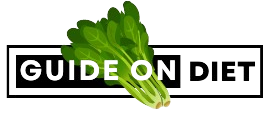French bean, also referred to as a green bean, snap bean, or string bean, is one of the most widely grown vegetables, praised for its nutritional value and health benefits, and versatility in cooking. Whether steamed, pan-fried, stir-fried, or added to salads, French beans are surely a great addition to any meal. In this article, we shall discuss where to grow French beans, their health benefits, nutritional values, advantages, and disadvantages as well as some practical ways they can be incorporated into a daily diet. In this article, let us discuss the health benefit and nutrition values of French Bean.

Where Are French Beans Grown?
French beans are produced globally, and this crop does well under both temperate and tropical conditions. Major countries that produce these crops are:
- India: Maharashtra, Karnataka, Himachal Pradesh and Tamil Nadu are the leading producers.
- China: The world’s largest producer of French beans mainly due to its favorable climatic conditions and state-of-the-art agriculture.
- The United States: Grown in areas like Florida, California, and Wisconsin.
- European Countries: European nations, such as France, Italy, and Spain, cultivate French beans for purposes of both internal consumption and exportation.
- Africa: Countries such as Kenya and Egypt emerge as the dominant trading nations that export French beans into Europe.
Health Benefits of French Beans
French beans are literally a storehouse of nutrients and offer numerous health related benefits:
- Abundance in Antioxidants: French beans abound with antioxidants like flavonoids and carotenoids which fight free radicals within the human body. It also inhibits the risks of particular chronic disorders, such as cancer, heart disorders, and Type-2 diabetes.
- Supports Healthy Heart: This vegetable consists of dietary fiber, potassium, and a low cholesterol content, which help to keep the heart in a healthy position. Dietary fibers reduce all bad cholesterol in the body, whereas potassium controls blood pressure.
- Aids in Weight Management: Low in calories and high in fiber, French beans are an excellent choice for weight-conscious individuals. The fiber content promotes satiety, reducing overeating.
- Improvement of Gut Health: French beans contain fiber that works very well to ensure that people avoid constipation, thus making bowel movements frequent. They also promote the multiplication of beneficial bacteria in the intestinal flora.
- Boosts Immunity: Being a good source of vitamins A and C, French beans strengthen the immune system. These vitamins play a crucial role in protecting human body against infections.
- Promotes Bone Health: French beans are an excellent source of calcium, vitamin K, and magnesium in building strong and healthy bones. Intakes of these nutrients may protect the skeletal system from the hazards of osteoporosis and related diseases.
- Supports Healthy Skin and Eyes: The content of vitamins A and C in French beans contributes to the improvement in skin texture and maintaining proper visions.
Nutritional Values of French Beans
Per 100 grams, raw French beans contain the following:
- Calories: 31 kcal
- Protein: 2.4 g
- Fat: 0.1 g
- Carbohydrates: 7.1 g
- Dietary Fiber: 3.4 g
- Vitamin A: 690 IU
- Vitamin C: 12.2 mg
- Calcium: 37 mg
- Iron: 1.0 mg
- Potassium: 209 mg
These nutritional components make French beans a nutrient-dense vegetable that can enhance overall well-being.
How to Incorporate French Beans into Diet
French beans, in layman’s terms known as green beans or snap beans, represent one of the most adaptable and nutrient-rich vegetables used and prepared in a wide variety of foods. The following are just some innovative and practical means for adding French beans to your day:
- Stir-Fries: French beans greatly improve the quality of quick stir-fry recipes. They can be stir-fried with garlic, onions, and a desired protein such as tofu, chicken, or shrimp. Adding soy sauce or a desired seasoning will make it a great-tasting meal that goes well with rice or noodles.
- Salads: Blanch French beans for a few minutes so that they remain crunchy and retain their vibrant green color, then toss them into salads. Combine with cherry tomatoes, boiled eggs, feta cheese, and a light vinaigrette for a refreshing and healthy meal.
- Curries and Side Dishes: French beans are prepared with spices, lentils, or potatoes to make curries or stir-fried side dishes. It is eaten with rice, chapati, or flatbreads in a healthy meal.
- Soups and Stews: It is best to chop French beans in small pieces and to blend them with vegetable-based soups, stews or brews. This is because compatibility maximizes the texture of dishes through nutritional advantage.
- Roasted Snack: For a simple, healthy and tasty snack, roast French beans in the oven with edible oil, salt and pepper. Add a sprinkle of parmesan cheese or chili flakes for extra flavour.
- Casseroles: Include French beans in classic casserole recipes. Combine them with creamy sauces, mushrooms and crispy onions for a comforting dish that’s perfect for family dinners.
- Pasta and Rice Dishes: Chop French beans and mix them into pasta, risotto or fried rice. Their crunch adds texture, while their mild flavour blends seamlessly with the dish.
- Smoothies: For a nutrient-packed green smoothie, steam French beans, then blend them with spinach, banana, yogurt and a splash of honey. This unconventional method ensures you get their benefits without altering the taste significantly.
- Pickled French Beans: Pickling French beans is another way to enjoy them. Use them as a tangy side dish or a topping for sandwiches and burgers.
Pros of Eating French Beans Daily
- Nutrient-Dense: French beans are rich in essential nutrients like dietary fiber, vitamins A, C and K and minerals such as potassium and magnesium. These nutrients support overall health, including immunity, skin health and bone strength.
- Low in Calories: A great choice for weight-conscious individuals, French beans are low in calories yet provide a good amount of fiber, which promotes a feeling of fullness and prevents overeating.
- Improves Digestive Health: It helps maintain regular bowel movements and prevents constipation, enhancing digestion with high levels of fiber. Besides, it enhances the good bacteria in the intestines.
- Rich in Antioxidants: French beans contain antioxidants, such as flavonoids and carotenoids, which facilitate the fight against free radicals, thus reducing the chances of chronic diseases like cancer, diabetes, and cardiovascular diseases.
- Supports Heart Health: Potassium in French beans keeps blood pressure right, whereas fiber reduces bad cholesterol levels and maintains cardiovascular well-being.
- Versatile in Cooking: They can be prepared in a variety of ways-boiled, stir-fried, added to salads, soups or casseroles-making them easy to include in daily meals.
Cons of Eating French Beans Daily
- Potential for Flatulence: French beans contain complex carbohydrates and fiber that some people may find hard to digest, leading to bloating or gas when consumed in large amounts.
- Risk of Kidney Stones: French beans contain natural compounds called oxalates, which can contribute to kidney stone formation, particularly in individuals predisposed to such conditions. Excessive consumption may increase the risk for those with a history of kidney problems. Therefore, consuming French beans in moderation is essential to minimize potential health concerns related to kidney stones.
- Pesticide Residues: Conventionally grown French beans may carry pesticide residues. Washing them thoroughly or opting for organic varieties can help minimize this risk.
- Allergic Reactions: Though rarely, some people might experience allergic reactions to French beans, especially in individuals with heightened sensitivities, which primarily occurs in people allergic to legumes. The symptoms may include pruritus, edema, or gastrointestinal upset.
- Nutrient Imbalance: Although very nutritious, dependency on this group of beans would tend to replace other nutritional contents through diets of diverse foods. Hence a balanced diet.
Conclusion
French beans are a delicious, nutrient-packed vegetable that offers a range of health benefits. Their versatility makes them a valuable addition to diets across cultures. Whether you’re looking to lose weight, improve digestion or simply enjoy a healthy meal, French beans can meet your needs.
However, like all foodstuffs, moderation is essential. People with specific health issues, such as kidney problems or legume intolerance, should consult their physician before adding French beans to their diet on a regular basis.
French beans can be enjoyed by trying out different recipes and cooking methods to understand their nutritional values and health benefits. Therefore, the next time you visit the market, it would be helpful to purchase a fresh bunch of French beans and add it as one of the routine items in your cooking routine.
[Read more : Health benefit and usage of Oyster mushrooms]
****************
Frequently Asked Questions
Q1. What are the primary health benefits of French beans?
Answer : French beans are rich in antioxidants, dietary fiber and essential vitamins like A, C and K. They support heart health, improve digestion, strengthen bones and boost immunity.
Q2. Can French beans help with weight management?
Answer : French beans are a low-calorie, high-fiber food that supports weight management by enhancing feelings of fullness. Their fiber content helps curb hunger and reduces the likelihood of overeating.
Q3. Are French beans good for heart health?
Answer : Absolutely! French beans are beneficial for heart health as they are rich in potassium, which helps regulate blood pressure by balancing sodium levels. Additionally, their high fiber content reduces bad cholesterol (LDL), promoting better cardiovascular health. Regular consumption can significantly lower the risk of heart disease and related complications.
Q4. How can French beans improve digestive health?
Answer : The dietary fiber in French beans aids digestion by preventing constipation and promoting the growth of good bacteria in the gut.
Q5. Are there any risks associated with eating French beans?
Answer : French beans contain oxalates, which may contribute to kidney stones in susceptible individuals. Some people might also experience bloating or gas due to their fibre content. Washing them thoroughly can reduce pesticide residues.
Q6. How can I include French beans in my daily diet?
Answer : French beans can be steamed, sautéed or stir-fried. They are great in salads, soups, curries or even roasted as a snack. French beans are incredibly versatile, making them simple to include in a wide range of dishes and recipes.
Q7. Can French beans be eaten raw?
Answer : Yes, French beans can be eaten raw, especially in salads, but it’s better to blanch or lightly steam them to enhance their taste and digestibility.
Q8. Are French beans suitable for children?
Answer : Yes, French beans are an excellent addition to a child’s diet. They provide essential nutrients like calcium and vitamins that support growth and development. Ensure they are cooked thoroughly to make them softer for children.
Q9. Do French beans have any benefits for skin and eyes?
Answer : Yes, the vitamins A and C in French beans promote healthy skin by reducing oxidative stress and improving collagen production. They also help maintain good eyesight.
Q10. Can French beans be frozen for later use?
Answer : Absolutely! Blanch French beans before freezing them to preserve their colour, texture and nutritional value. They can be stored for several months and used directly in recipes.
